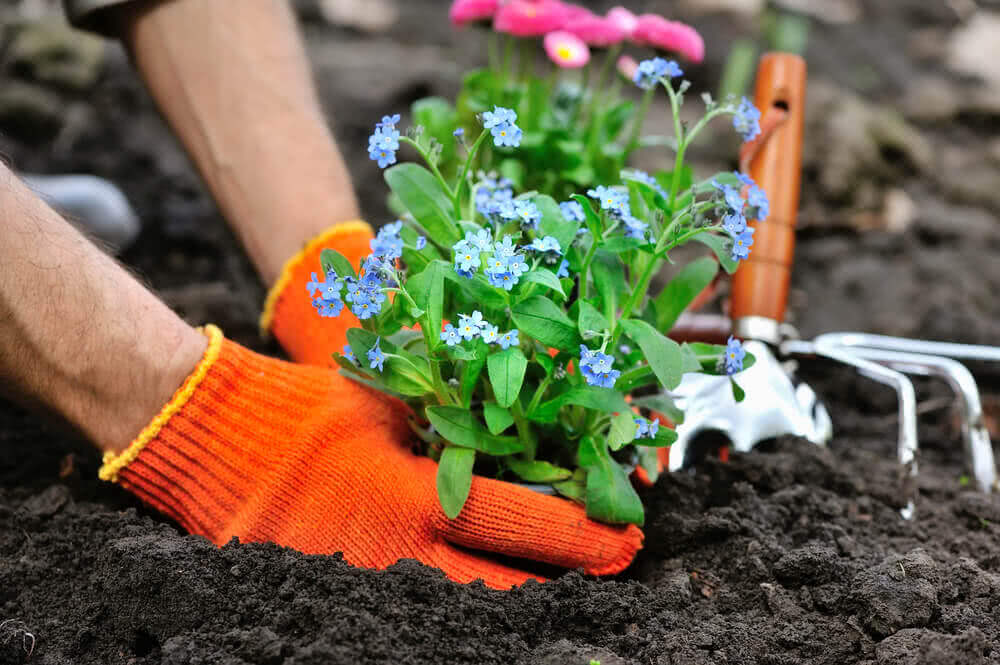Unlocking the Conveniences of Gardening: A Thorough Consider the Different Types and Their Effect On Wellness
Discovering the diverse benefits of horticulture discloses a range of techniques that dramatically improve individual health. As we check out these varied horticulture methods, it becomes evident that their influence can reverberate on personal, social, and environmental levels, motivating a better look at just how these links form a cohesive narrative of alternative health and wellness.
Kinds Of Gardening

Flower gardening, another popular group, highlights the aesthetic appeal of cultivated blossoms. This kind can boost landscapes and promote biodiversity by attracting helpful pollinators. In a similar way, natural herb gardening includes growing fragrant and cooking plants, adding both to food preparation and natural solutions.
Container gardening offers versatility, allowing people with limited room to participate in gardening by making use of pots and planters. This method is specifically preferred in metropolitan settings. Elevated bed gardening, on the other hand, includes producing raised stories that improve soil water drainage and availability, making it much easier for garden enthusiasts to manage their plants.
Lastly, area gardening cultivates collaboration amongst individuals in common rooms, advertising social interaction and cumulative duty. Each kind of horticulture serves distinctive functions and accommodates different preferences, making gardening a flexible activity that can be tailored to private requirements and settings.
Mental Wellness Advantages
Taking part in different types of horticulture not just yields concrete benefits such as fresh produce and gorgeous blossoms yet also offers significant mental health and wellness advantages. Study indicates that horticulture can be a powerful device for reducing stress and anxiety, anxiousness, and clinical depression. The act of having a tendency to plants and growing a yard promotes a sense of purpose and achievement, which can improve total emotional health.
Furthermore, gardening motivates mindfulness, as it calls for individuals to concentrate on the existing moment, whether it be planting seeds or supporting growth. This mindfulness method can result in decreased rumination and enhanced mood stability. The exposure to natural surroundings during gardening has additionally been connected to boosted cognitive operating and lowered sensations of fatigue.
Social interaction plays a vital duty in psychological health and wellness, and community gardening efforts provide chances for people to link with others, promoting a feeling of belonging. The common experience of horticulture can grow friendships and support networks, better strengthening psychological resilience.
Physical Health Benefits
Numerous individuals might not recognize that horticulture additionally provides substantial physical health advantages. Participating in gardening tasks requires a series of physical activities, consisting of bending, training, digging, and planting, which jointly contribute to improved strength, adaptability, and endurance. These actions can boost cardiovascular health and wellness by advertising a raised heart price, thereby decreasing the danger of cardiovascular disease.
Furthermore, horticulture can offer as a moderate-intensity workout, helping individuals achieve advised physical task degrees. Researches suggest that normal participation in horticulture can burn substantial calories-- around 200-400 calories per hour, depending on the intensity of click here to find out more the tasks carried out. Such calorie expense is helpful for weight monitoring and general metabolic health.
Furthermore, direct exposure to sunshine throughout horticulture can help with the synthesis of vitamin D, which plays a crucial function in keeping bone health and wellness and sustaining immune function. In addition, the act of gardening usually entails collaborating with dirt, which has been connected to prospective psychological and physical health and wellness benefits due to the existence of advantageous microorganisms. Gardening.
Social Connections Via Horticulture
The public aspects of gardening foster purposeful social connections among individuals. Community yards, in certain, work as dynamic centers where individuals from diverse backgrounds integrated, growing not just plants however likewise connections. These common rooms urge collaboration, permitting people to exchange expertise, skills, and his response sources, therefore improving their horticulture experience and promoting a sense of belonging.
Involvement in gardening activities usually results in the development of relationships and support networks. Participants often unite for typical objectives, such as planting periods, harvest celebrations, or educational workshops, which enhance social ties and produce a sense of neighborhood. Such communications can ease sensations of seclusion and improve mental health, as individuals find companionship and friendship in shared ventures.

Ecological Effect of Horticulture
Gardening significantly adds to ecological sustainability in several ways. Home gardens offer essential environments for numerous species, including pollinators such as and butterflies, which are necessary for ecological community health and wellness.

Moreover, gardens play a crucial function in water conservation. Well-planned landscapes, consisting of indigenous plants and xeriscaping, lower water usage and protect against drainage, therefore protecting local rivers from air pollution.
Verdict

Finally, horticulture acts as a diverse task that boosts well-being throughout various domain names. The diverse sorts of horticulture-- consisting of veggie, blossom, natural herb, container, and increased bed-- add to mental and physical health, foster social links, and advertise ecological sustainability. By participating in horticulture practices, people can experience better high quality of life while additionally sustaining area bonds and eco-friendly health and wellness. Inevitably, the alternative benefits of gardening highlight its relevance as a vital element in boosting overall well-being.
Comments on “Exactly How Gardening Can Boost Your Wellness and Wellbeing”